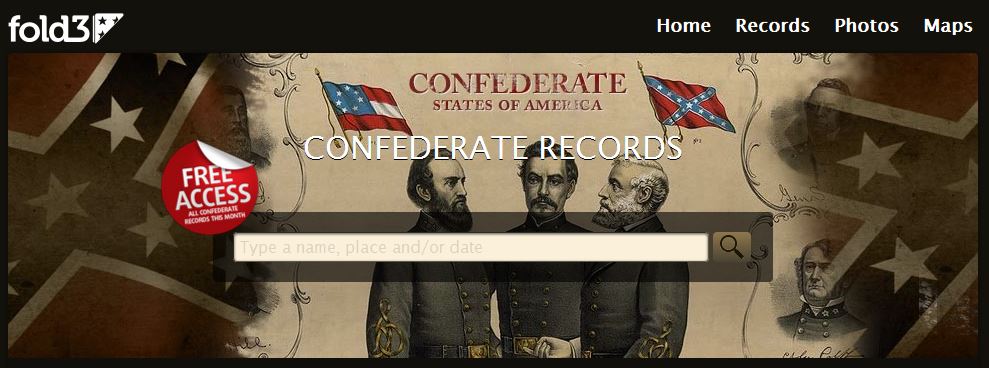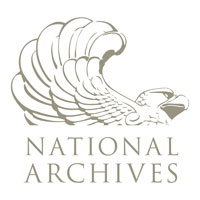by Lisa Cooke | Apr 9, 2013 | 01 What's New, NARA, Records & databases, Research Skills
Beware: Personal Opinions are coming your way in this article!
In my book The Genealogist’s Google Toolbox I emphasize how to use Google to determine what is already available and free online before investing your limited time and money in offline family history searching. Smart genealogists allocate their resources wisely, getting the most bang for their buck. And collaboration between individual genealogists allows us to accomplish even more.
 It looks like the U.S. Federal Government could learn a thing or two from savvy genealogists. The Washington Times is reporting that Congress’s auditor has discovered that our tax payer money given to the federal government isn’t being spent very wisely. (Imagine that!) Agencies fail to collaborate and share information, creating redundancy and overspending.
It looks like the U.S. Federal Government could learn a thing or two from savvy genealogists. The Washington Times is reporting that Congress’s auditor has discovered that our tax payer money given to the federal government isn’t being spent very wisely. (Imagine that!) Agencies fail to collaborate and share information, creating redundancy and overspending.
One example from the article: the Commerce Department “has been charging other government agencies millions of dollars for reports that the other agencies could just as easily have gotten online, for free – often with a Google search.”
This news makes it even harder to swallow the news that the National Archives and Records Administration (NARA) is suffering reduced hours of service due to budgetary issues.
The Bottom Line:
Google Twice, Pay Once (and only if you have to!)
by Lisa Cooke | Apr 9, 2013 | 01 What's New, History, Military, NARA, Records & databases

For the month of April, Fold3 is offering free access to its Confederate Civil War collections of more than 19 million records. Many of these are from the National Archives’ War Department Collection of Confederate Records: Confederate Compiled Service Records, Confederate citizens’ files and Confederate Casualty Reports. Whether you’re looking for specific Confederate Civil War soldiers or you’re just interested in history, these records are fascinating!
For example, there are compiled service records for “Galvanized Yankees,” or Confederate prisoners-of-war who obtained a release by enlisting in the Union army. Many of these files have the soldier’s declaration of “Volunteer Enlistment” and an oath of allegiance to the United States. You have to wonder what each man was thinking and feeling as he signed these papers. How did his Union enlistment go? How did his family and community react? If he survived the war, how was his life afterward affected by that choice? There are stories behind every record–and Civil War records are some of the most compelling.
You’ll also find other interesting records in this collection, many created post-war: the Confederate Amnesty Papers, Confederate Navy Subject File, papers relating to the Civil War Subversion Investigations, and files of the Southern Claims Commission.
by Lisa Cooke | Nov 9, 2012 | 01 What's New, NARA
 Washington, DC . . . Today, the U.S. District Judge Catherine Blake sentenced Jason Savedoff to twelve months and one day in prison, plus two years probation, for conspiracy and theft of historical documents from cultural institutions in four states, including the Franklin D. Roosevelt Presidential Library in Hyde Park, New York.
Washington, DC . . . Today, the U.S. District Judge Catherine Blake sentenced Jason Savedoff to twelve months and one day in prison, plus two years probation, for conspiracy and theft of historical documents from cultural institutions in four states, including the Franklin D. Roosevelt Presidential Library in Hyde Park, New York.
Among the items known to be stolen from the Roosevelt Library, which is part of the National Archives and Records Administration, were seven “reading copies” of speeches that President Roosevelt delivered. They contained President Roosevelt’s edits and handwritten additions, along with his signature. The speeches have all been recovered.
Savedoff’s co-conspirator, Barry Landau, pled guilty, and was sentenced on July 28, 2012, to seven years in prison and three years of supervised release.
Archivist of the United States David S. Ferriero thanked the Maryland Historical Society, the National Archives’ Holdings Protection Team and Office of the Inspector General, and the U.S. Justice Department, for bringing the case to justice. He stated: “Close coordination with these tireless stewards allowed us to stop Jason Savedoff and Barry Landau, to build a case against them, and to bring them to justice.”
The Archivist continued, “The security of the holdings of the National Archives is my highest priority. I will not tolerate any violation of the law that protects both records and property that belongs to the U.S. government and the American people.
“The National Archives does not stand alone. All repositories of historical records and artifacts are faced with the serious challenge to keep their holdings secure. Any theft of our nation’s records is an irreplaceable loss. We at the National Archives must remain constantly vigilant, to ensure the protection of our nation’s precious heritage, while at the same time balancing the right of every American to have access to original records.”
Under the current leadership, the National Archives has become more vigilant, including by ensuring the establishment of the Holdings Protection Team to assess, determine, and implement security measures to ensure the public’s access to their holdings. The Holdings Protection Team has instituted a program of security studies, risk assessments, and increased security, monitoring, and screening at National Archives facilities nationwide. The Holdings Protection Team provides training to National Archives archivists and research room staff (and other employees), as well as to staff at other institutions, all aimed at increasing awareness and communication of security issues. The National Archives has also instituted a number of other measures aimed at preventing theft, such as closed-circuit cameras, exit searches, mandatory staff training, and outgoing mail inspections.
According to court records, seven “reading copies” of President Roosevelt’s speeches were stolen when Savedoff and Landau visited the Roosevelt Presidential Library on December 2, 2010.
“Reading copies” are the actual copies of the speeches from which the President read. They contain edits and handwritten annotations made by him and bear his signature.
Four of these “reading copies” of speeches were sold to a collector on December 20, 2010, for $35,000. Three other “reading copies” of inaugural addresses delivered by President Roosevelt were recovered elsewhere. Each was valued at more than $100,000, and one was the water-stained reading copy of the inaugural address President Roosevelt delivered in a steady rain in 1937.
The National Archives and Records Administration is an independent Federal agency that preserves and shares with the public the permanent records of the U.S. Government that trace the story of our nation, government, and the American people. From the Declaration of Independence to accounts of ordinary Americans, the holdings of the National Archives directly touch the lives of millions of people. The National Archives carries out its mission through a nationwide network of archives, records centers, and Presidential Libraries, and on the Internet athttp://www.archives.gov
by Lisa Cooke | Aug 7, 2012 | 01 What's New, Records & databases, Research Skills
Is the National Archives a research frontier you haven’t conquered yet? Well, that frontier just got a lot easier to tame. The Archives has released its own series of expert how-to videos on its most in-demand topics on its YouTube Channel at http://tinyurl.com/NARAGenie.
most in-demand topics on its YouTube Channel at http://tinyurl.com/NARAGenie.
The Know Your Records series introduces you to the creation, content, and use of valuable records created by the federal government. You’ll be able to make new inroads into your own American ancestral frontier along the trails of military, Freedmen’s Bureau, and other records groups when you check out new workshops like these:
- Access to Archival Databases for Genealogists (runs 55 minutes). This is an introductory level-discussion of the more popular parts of the 27 genealogically-interesting series of electronic records in the Archival Databases run by the National Archives. Learn the mechanics of searching these data files directly online.
- Army Service in the Civil War (runs 1 hour and 2 minutes). Learn to research Army service records of Civil War soldiers on both sides of the war. This video covers two major record groups: RG 94, the records of the Adjutant General (or chief record-keeper) for the Union Army; and RG 109, comprised of the Confederate records that survived the war and were turned over to War Department.”
- Documenting Death in the Civil War (runs 1 hour and 22 minutes). Learn how the War Department documented both Confederate and Union soldiers’ deaths on the battlefield, in military hospitals and prisons.
- Exodus to Kansas: The 1880 Senate Investigation of the Beginnings of the African American Migration from the South (runs 1 hour and 5 minutes). Learn more about the journey and experience of thousands of refugees from the Reconstruction-era South to Kansas as shown in the 1880 Senate investigation of this mass migration.
- Let No Man Put Asunder: Freedmen’s Bureau Marriage Records (runs 1 hour and 12 minutes). Learn more about marriage in the African American experience and specifically how to research African American marriage records within the Freedmen’s Bureau collection (1865-1872), the “richest and most extensive documentary source for investigating the African American experience in the post-Civil War and Reconstruction eras.”
- National Archives Records on Ancestry.com (runs 56 minutes). Learn from Ancestry’s own lead family historian, Anastasia Harmon, what National Archives records are available on Ancestry and strategies for searching for your ancestors on this mega site. She digs into much-used (but not always well-used) record groups like the U.S. federal census records, passenger arrival lists, border crossings and passport applications.
Of course, many of us don’t have known Civil War or African American ancestors. But everyone can learn from the first and last lectures on the list above (even if you only use Ancestry.com at your local library). So start exploring these free workshops, and soon you’ll be navigating the frontiers of your own American ancestry.
by Lisa Cooke | Jul 2, 2012 | NARA
Press Release from the National Archives:
Barry Landau Sentenced to 7 Years for Thefts From National Archives, Other Institutions
Washington, DC . . . U.S. District Judge Catherine C. Blake yesterday sentenced Barry H. Landau to seven years in prison, and three years of supervised release, for conspiracy and theft of historical documents from cultural institutions in four states, including the Franklin D. Roosevelt Presidential Library in Hyde Park, New York.
The items stolen from the Roosevelt Library, which is part of the National Archives and Records Administration, were seven “reading copies” of speeches that Roosevelt delivered. They contained his edits and handwritten additions, along with his signature. They have all been recovered.
Landau’s co-conspirator, Jason Savedoff, will be sentenced at a later date.
Archivist of the United States David S. Ferriero said he was pleased that Judge Blake “recognized the seriousness of this crime and meted out an appropriate punishment that will serve as a warning to others who may contemplate stealing our nation’s history.”
“There is a very special bond that forms between researchers and research institutions. It’s kind of like an insider’s club. We speak the same language, share the same interests, explore the same minute details of historical knowledge that will eventually fill in the fabric of our shared history as a nation,” the Archivist added.
“When a researcher turns out to be a thief and steals the documents that are the very underpinnings of our democracy, our trust and respect for the community is shaken. Barry Landau is just that thief. Dressed in the guise of a scholar, he ingratiated himself with our staff and stole priceless documents from the Franklin Roosevelt Library. In essence he robbed from all of us—our collective history. And he did far worse damage to numerous other research institutions around the country.”
The Archivist said that because of incidents such as those involving Landau, the National Archives and other research institutions around the world have become more vigilant over the last few decades. They have instituted a number of measures aimed at preventing theft, such as closed-circuit cameras, clean research room rules, exit searches, and increased staff surveillance.
“When a theft does occur, we rely on the Office of the Inspector General and the Justice Department to build a case and bring the perpetrator to justice,” he added. “I want to thank them for their hard work.”
Lynn Bassanese, Acting Director of the Roosevelt Library, recalled that when Roosevelt dedicated his library on June 30, 1941, he declared it an “act of faith” in the American people.
“Barry Landau and Jason Savedoff violated that faith by taking advantage of the trust and confidence that the Roosevelt Library’s staff has for its researchers,” she said.”With the successful return of the stolen documents, the Roosevelt Library renews its commitment to protect and preserve the records of the Roosevelt Presidency and to make them accessible to the American people for generations to come.”
According to Landau’s plea agreement, the “reading copies” of Roosevelt’s speeches were stolen when he and Savedoff visited the Roosevelt Library on December 2, 2010.
“Reading copies” are the actual copies of the speeches from which the President read. They contain edits and handwritten additions made by him and bear his signature.
Four of these “reading copies” of speeches were sold by Landau on December 20, 2010, to a collector for $35,000. Three other “reading copies” of inaugural addresses delivered by Roosevelt, valued at more than $100,000 each, were recovered from Landau’s apartment in New York City during court-authorized searches, including the water-stained reading copy of the inaugural address Roosevelt delivered in a steady rain in 1937.
Judge Blake also ordered Landau to pay restitution totaling $46,525 to three dealers who purchased the stolen documents from Landau, not knowing they were stolen. She also ordered Landau to forfeit all the documents recovered during searches of his New York apartment.
The National Archives and Records Administration is an independent Federal agency that preserves and shares with the public records that trace the story of our nation, government, and the American people.
 It looks like the U.S. Federal Government could learn a thing or two from savvy genealogists. The Washington Times is reporting that Congress’s auditor has discovered that our tax payer money given to the federal government isn’t being spent very wisely. (Imagine that!) Agencies fail to collaborate and share information, creating redundancy and overspending.
It looks like the U.S. Federal Government could learn a thing or two from savvy genealogists. The Washington Times is reporting that Congress’s auditor has discovered that our tax payer money given to the federal government isn’t being spent very wisely. (Imagine that!) Agencies fail to collaborate and share information, creating redundancy and overspending.






